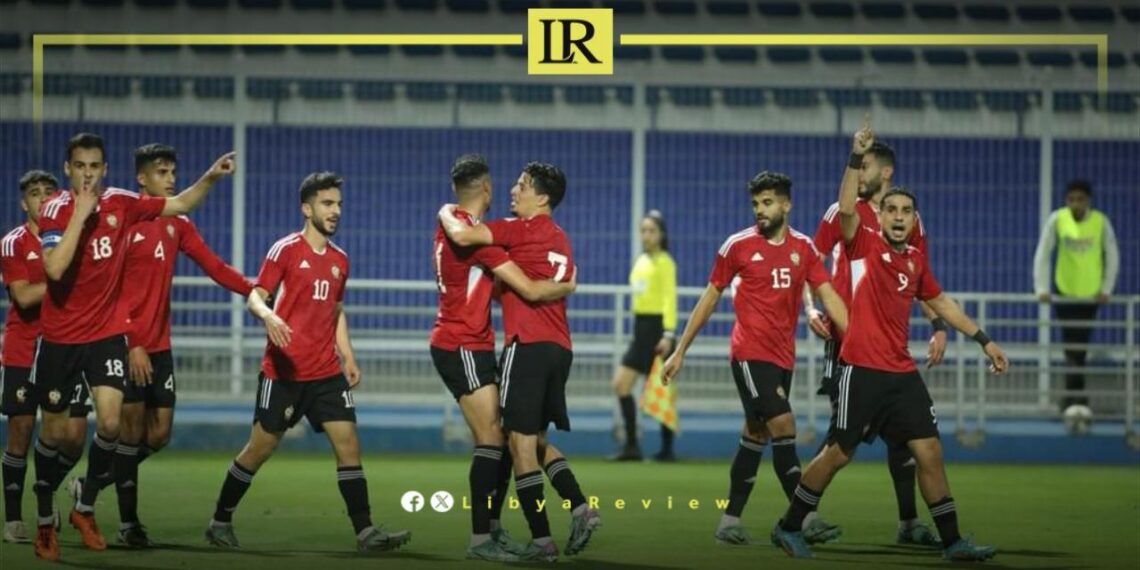In a recent friendly match held in Morocco as part of their training camp, the Libyan national football team clinched a win against Burkina Faso with a score of 2-1.
According to a Spokesperson from the Libyan Football Federation, the match kicked off with Libya’s Faisal al-Badri opening the scoring, only for the Burkinabe team to level the score before the end of the first half. This resulted in a 1-1 draw at the break.
The game intensified in the second half as the Libyan team missed several opportunities but eventually found success through Omar al-Khoja, who netted the decisive second goal in the 62nd minute.
Despite efforts from Burkina Faso to equalise, the solid defense of the Libyan team and the exceptional performance of their goalkeeper, al-Wahaishi, who skillfully thwarted multiple shots at goal, ensured a Libyan victory.
This match underscores the Libyan team’s strategic prowess and determination, setting a positive tone for their upcoming fixtures.
Football in Libya, a popular and passionately followed sport, has a rich history dating back to the Italian occupation in the early 20th century. The sport’s popularity surged post World War II, leading to the establishment of the Libyan Football Federation in 1962. Libya’s domestic football scene is dominated by clubs like Al-Ittihad and Al-Ahly Tripoli, which have garnered significant local and regional success.
Libya’s national team, known as the Mediterranean Knights, has had its moments on the international stage. The team’s most significant achievement came in 1982 when they hosted and reached the final of the Africa Cup of Nations, only narrowly losing to Ghana. Despite the challenges posed by political instability and infrastructural issues, football remains a unifying force in Libyan society.
Libyan clubs participate in various African competitions, showcasing the nation’s talent and passion for the sport. However, political turmoil and conflict in recent years have hindered the development of football, affecting both domestic leagues and international representation. Nonetheless, the resilience of players and fans alike keeps football alive in Libya, with hopes of returning to former glories and achieving greater success on the African and world stages.


